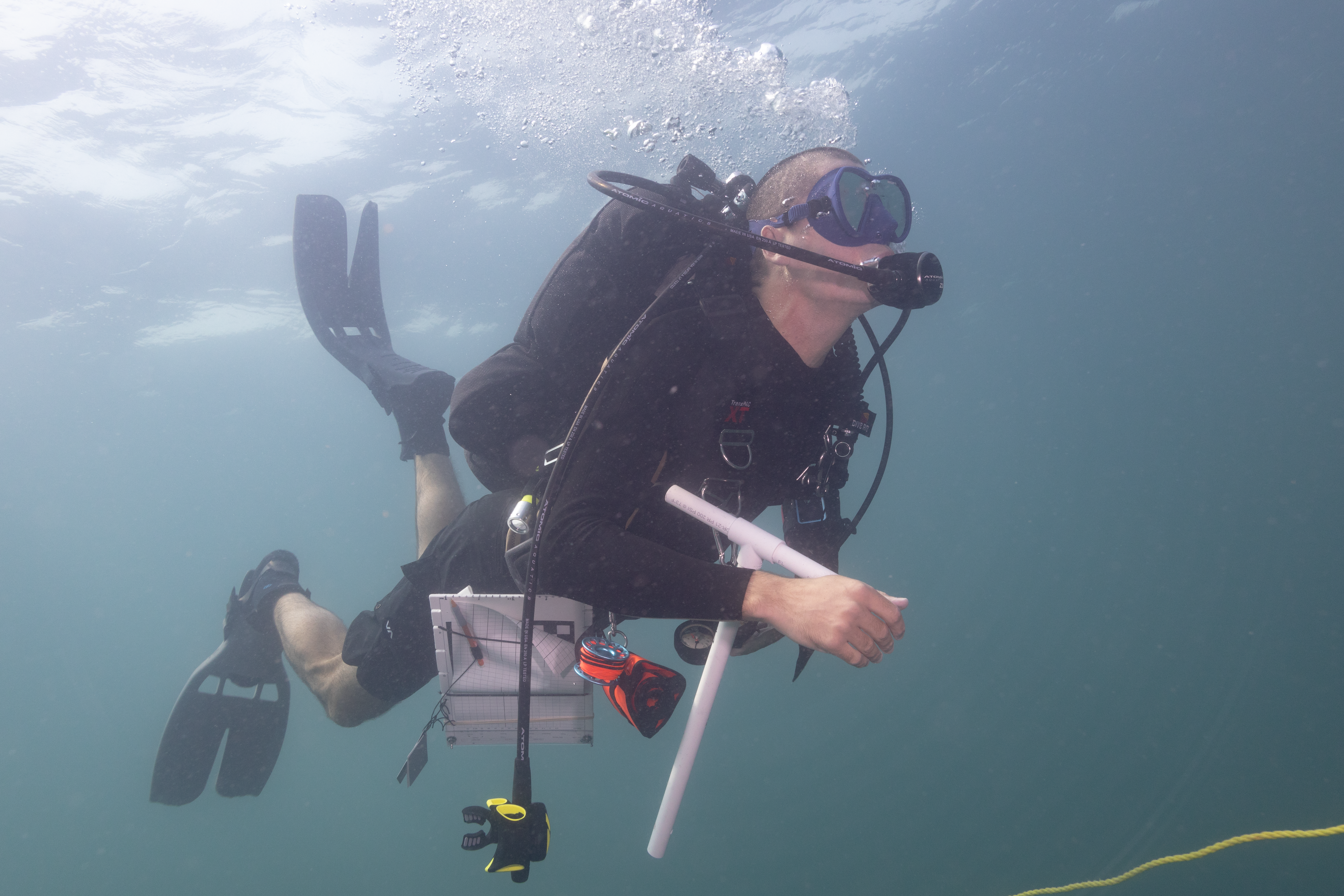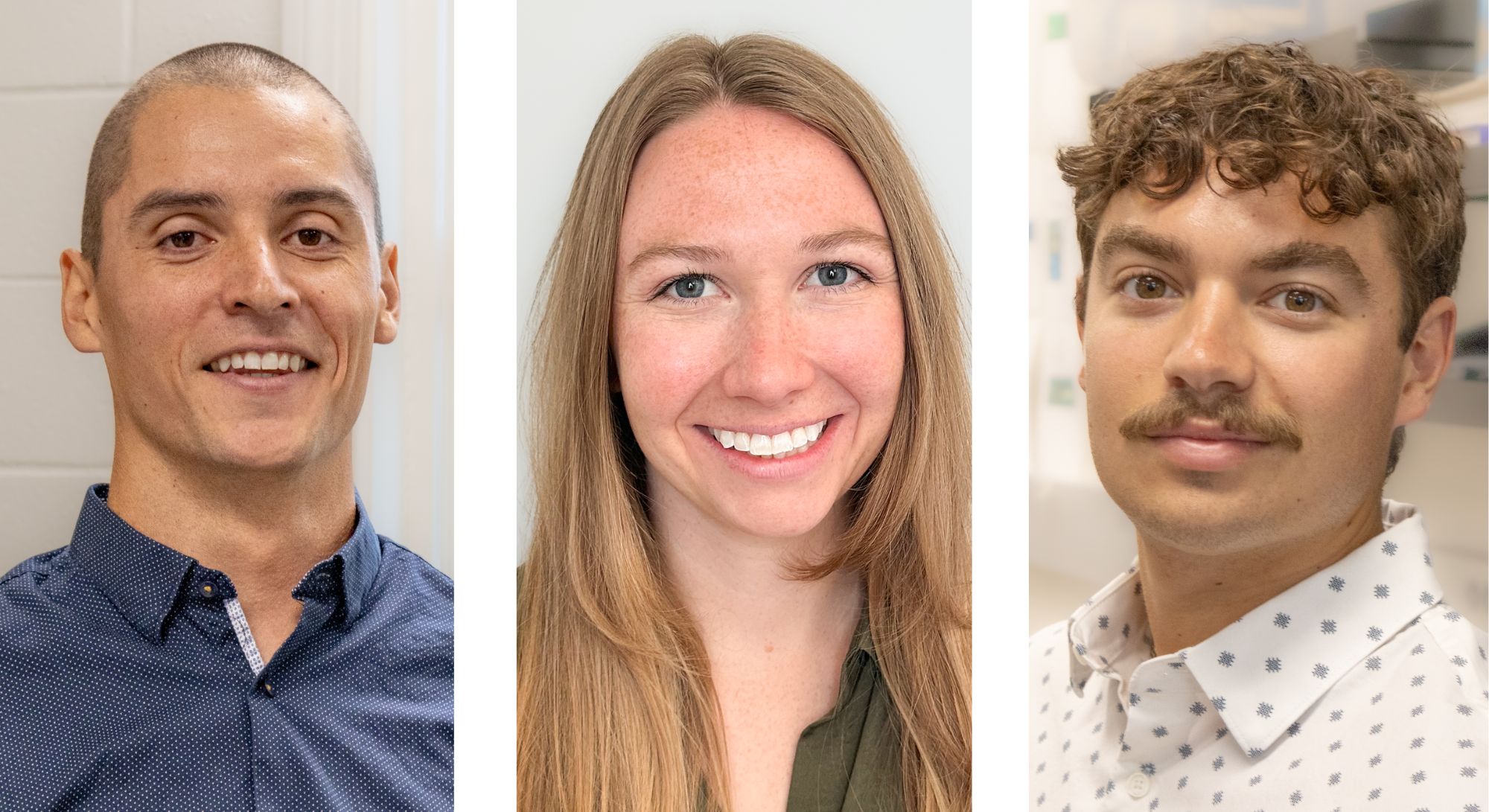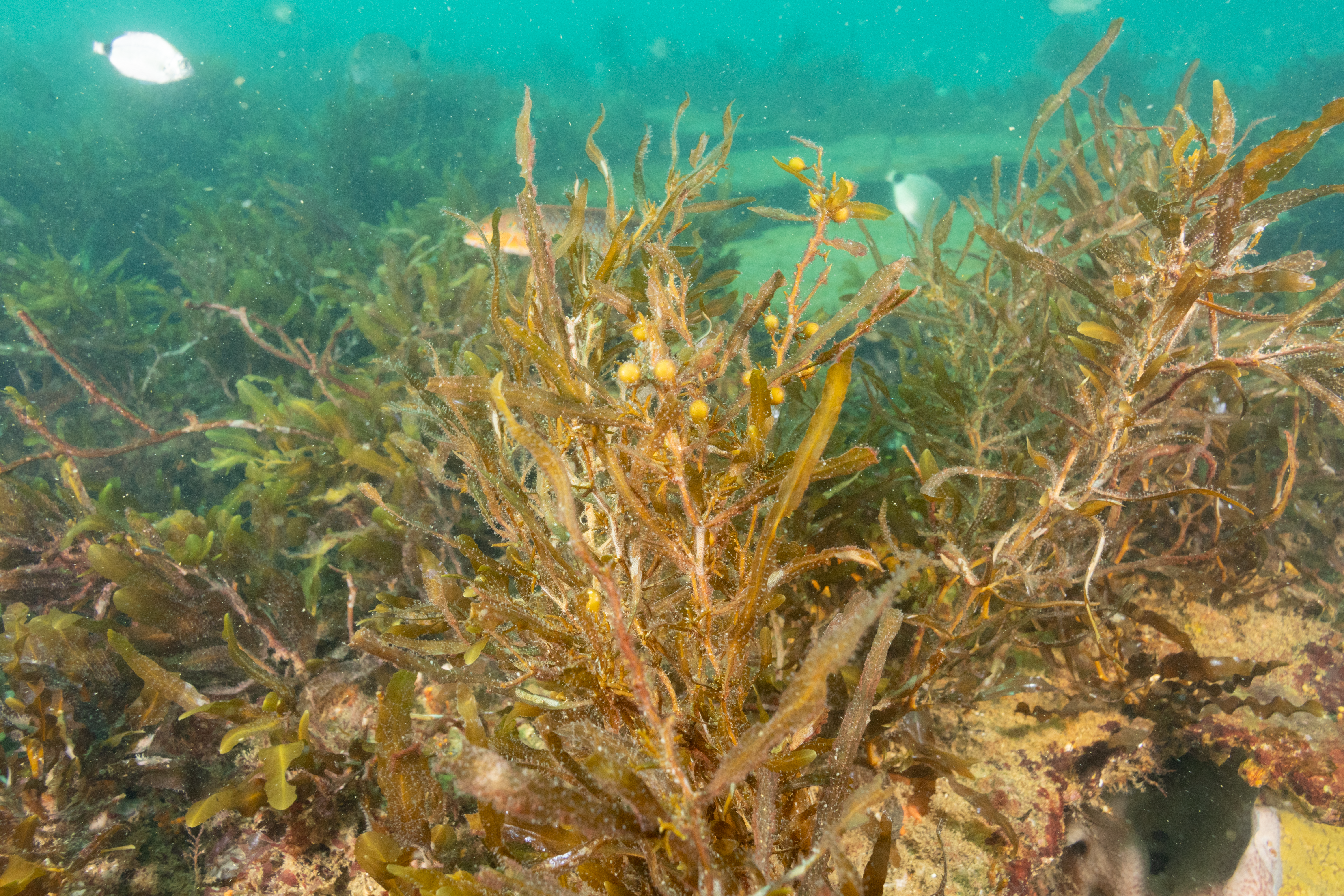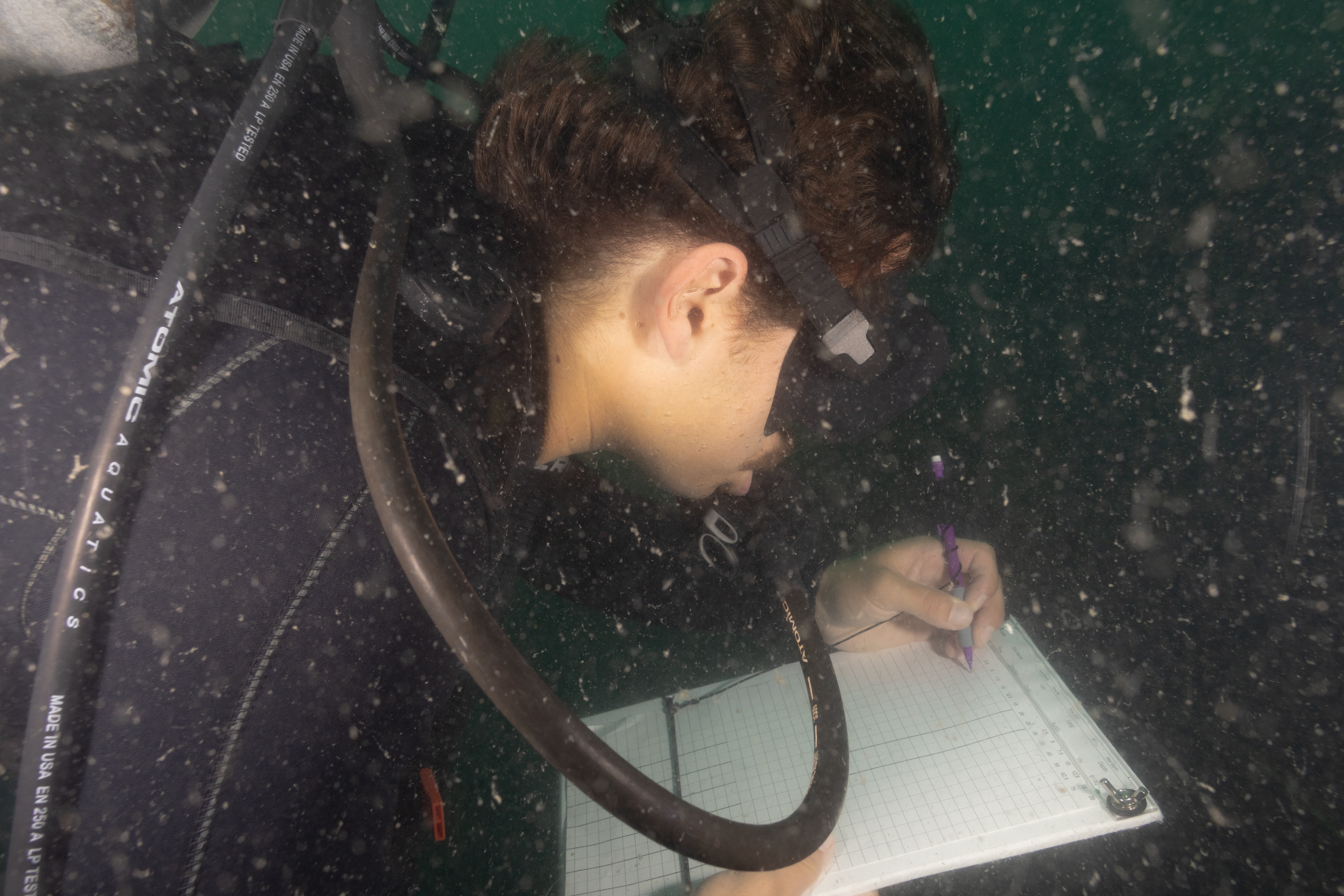NC Sea Grant to Fund UNCW Student Team Looking at Climate Impacts on Reefs

For Immediate Release
Contact: Katie Mosher, kmosher@ncsu.edu
Students from the University of North Carolina Wilmington are recipients of North Carolina Sea Grant’s Resilience Team Competition funding for a new study of reef ecosystems in light of climate change.
The team — Jared Oviatt, a marine biology master’s student, along with undergraduates Mark Leavitt Jr. and Samantha Michels — will conduct follow-up surveys of NC reefs to identify changes in reef ecosystems’ communities including fish, algae, and invertebrates.

“Our research will provide a unique 10-year snapshot of the ecosystems on North Carolina’s natural reefs and the artificial reefs that NC managers regularly deploy off our coast,” Oviatt explains. “Our surveys will provide them with updated data on reef health and reef community composition.” The study will include researchers scuba diving to record abundance of all fishes present throughout the water column.
The state uses a variety of structures as artificial reefs, from concrete rubble to shipwrecks. “It is important that managers are able to weigh the pros and cons of not just material availability and expense, but also the ecological impact those structures will have on the system, and whether this is similar to functioning natural reefs,” Oviatt notes. “Our research also will provide insight into how reef function has changed over time as our coast has been, and continues to be, impacted by climate change,” he adds.

John Fear, deputy director of North Carolina Sea Grant, notes the applied research will assist in the management of these systems. “Such updated sampling and data comparison is crucial information for managers who must assess long-term resilience of fisheries and ecosystem health,” he explains.
The team concept also is designed for graduate students to mentor undergraduates, sharing coastal research methods and career skills firsthand. “In our project, students will conduct extensive field sampling and data analysis, and will be continuously challenged to solve unique problems,” says Matthew McLean, the team’s advisor.
“Students will also learn about coastal resource management issues and network with scientists in state and federal agencies. Ultimately, this project will help students identify their strengths and interests and shape their career trajectories,” he adds, noting that upon completion of the project, the team will be exceptionally well prepared and poised to pursue multiple career pathways in STEM.
All three team members have been considered nontraditional students at UNCW. “Our combined experiences are certainly reflected in the skills and dedication this team will bring to our research,” Oviatt notes.

Oviatt earned his associate’s degree part-time from Austin Community College in Texas before studying full-time to complete his bachelor’s at UNCW, including an honors thesis on NC epibenthic ecology. Michels is pursuing a second bachelor’s degree at UNCW, having received a degree in communication sciences and disorders at Appalachian State University, working in various education roles, and serving as a research intern with the South African Shark Conservancy. Leavitt started his education at Jacksonville University. Taking a break from academia, he pursued a career building custom sport fishers in Virginia. He is completing his bachelor’s at UNCW, and this project extends his previous work with McLean on functional diversity.
Oviatt also notes that the project itself builds upon his respect for earlier work by Avery Paxton, who is now with NOAA. As part of her doctoral studies at the University of North Carolina at Chapel Hill, Paxton conducted earlier reef studies with state and federal funding. Shark data from the team project will be shared with the Spot-A-Shark program that has included leadership from Paxton and NC Aquariums.
Describing himself as an avid photographer, gardener, diver and spearfisher, Oviatt explains that he loves to be involved in ecosystems. “I see this project as an ideal combination of my interests and values, as well as an exciting marine ecology project,” he notes.
Lead photo: Jared Oviatt includes scuba diving in his reef surveys. Photo credit: Mark Leavitt Jr.
##
Learn more about the Resilience Team Competition.
- Categories:


